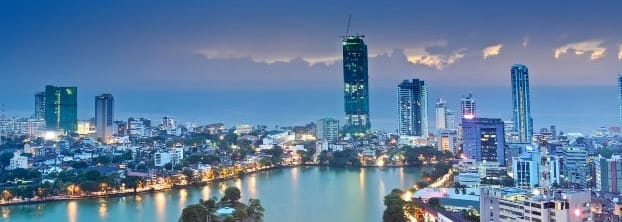Sri Lanka's Economic Revival: Progress Amidst Persistent Challenges
Sri Lanka is witnessing a significant turnaround after the economic crisis that crippled the nation in 2022
Sri Lanka is witnessing a significant turnaround after the economic crisis that crippled the nation in 2022. The stalled projects have resumed, including a notable 5.3 km elevated highway costing $360 million. Long queues for fuel and food, once a common sight, are becoming a thing of the past. This recovery began with a $2.9 billion bailout package from the International Monetary Fund (IMF), which imposed strict conditions requiring Sri Lanka to restructure its debt.
In 2023, Sri Lanka successfully restructured its domestic debt. Now, the government has also concluded bilateral debt restructuring with foreign countries. The next step is reaching an agreement with commercial creditors, including International Sovereign Bond holders. The new terms agreed upon by bilateral creditors are expected to save the government over $5 billion, according to government source.
President Ranil Wickremesinghe has played a pivotal role in navigating the country through this crisis. His administration's decisive actions and negotiations with international bodies have been crucial in securing the necessary funds and implementing reforms aimed at stabilizing the economy. His leadership has also been instrumental in restoring confidence among both domestic and international stakeholders.
However, opposition parliamentarian and former National Development Bank head Iran Vikramaratne emphasizes the challenges ahead. He notes the tension among the population due to the severe impacts of the crisis. "Balancing reform with benefits to everyone is crucial," he stated, adding that while the IMF's program might technically meet its targets, it would fail if it leads to social unrest.
Economic analysts highlight that growth is key to recovery. Although some sectors that contracted by up to 70% have rebounded, they have not yet reached their previous output levels. The poverty rate remains alarmingly high, with estimates suggesting that between 25% to 30% of the population lives in poverty. Nearly 50% of the population has seen a decline in their quality of life.
A Colombo resident, Inoka Kariyawasam, voiced the common sentiment among many Sri Lankans. "The cost of living is much too high. I have four children, two of whom are still studying. We live outside Colombo and travel daily, which adds to our costs. My salary hasn't increased proportionally," she said.
While many Sri Lankans agree that the country is in a better place than it was two years ago, opinions are divided on the government's handling of the economic recovery. Development projects are back on track, and inflation is under control, but the stringent reforms required to secure the IMF bailout have left a lasting impact on daily life.
President Wickremesinghe's efforts have set the foundation for recovery, but ensuring that economic reforms lead to tangible benefits for the entire population remains a critical task for the Sri Lankan government. The road to full recovery is still fraught with challenges, and the government's ability to balance reform with social equity will be key to sustaining this progress.






